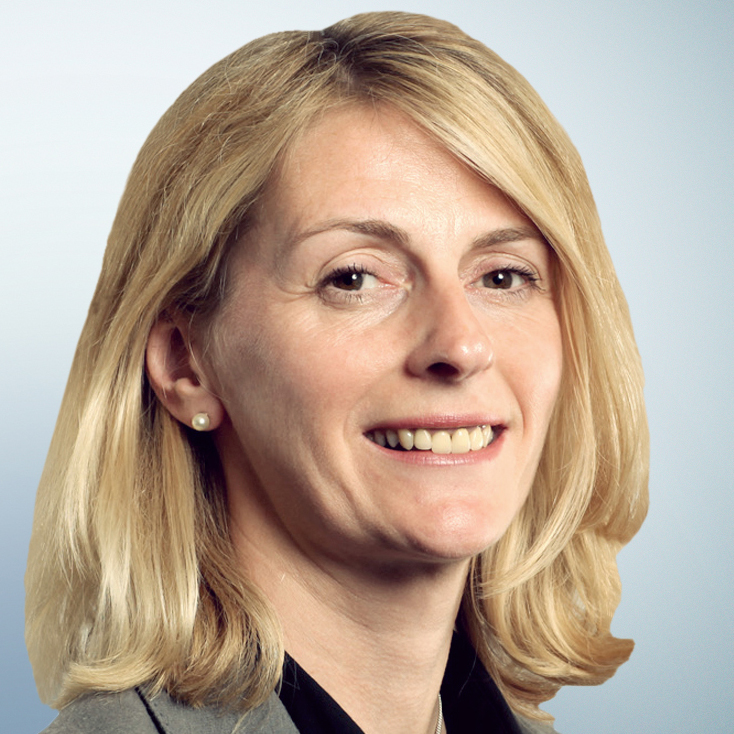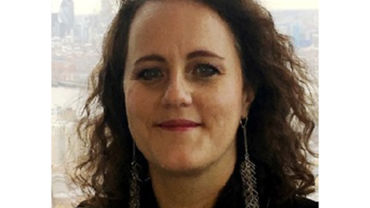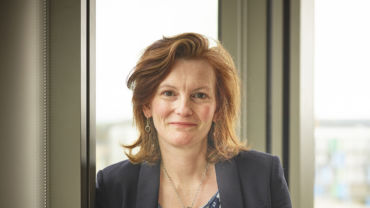 Michelle Bramley, Global Head of Knowledge at Freshfields Bruckhaus Deringer, is passionate about being at the forefront of developments in the law, and embracing legal tech. She also believes strongly in diversity, and not just in terms of gender, but also along sexuality, religious and social background lines. Bramley recently joined Thomson Reuters’ Transforming Women’s Leadership in Law (TWLL) Advisory Board to help raise awareness of these issues.
Michelle Bramley, Global Head of Knowledge at Freshfields Bruckhaus Deringer, is passionate about being at the forefront of developments in the law, and embracing legal tech. She also believes strongly in diversity, and not just in terms of gender, but also along sexuality, religious and social background lines. Bramley recently joined Thomson Reuters’ Transforming Women’s Leadership in Law (TWLL) Advisory Board to help raise awareness of these issues.
How did it all start for you, and when did you first become interested in the law?
It all started when I was 16 years old, because up until then I always thought I wanted to be a teacher. It was my father who suggested to me that the skills that I was demonstrating at that point, being a slightly argumentative teenager, might be better suited to the law. So, that is when I decided that it was what I wanted to do. I went on to study law at university, and then joined Freshfields where I qualified as a solicitor in the UK and in Hong Kong, focusing on dispute resolution.
Have your aspirations changed throughout your law career?
Yes, and I will be absolutely honest. When I joined Freshfields aged 22 as a trainee, I firmly had in my sights that I wanted to be a partner. When I started at Freshfields, I worked on international mandates for the disputes team which meant working across time zones and also quite a bit of travel. Then, when my first child came along at age 30 I realised that it was going to be harder for me at that time to combine a fee-earning career and the expectations of a partner, with trying to bring up a family. I didn’t have family living nearby to help, so I didn’t have a support network around me. I decided that the work-life balance at that point in my life outweighed the partnership ambition, so I moved into the professional support world. So initially, as a fresh-faced 22 year old, I thought that a career in law in private practice means that you start as an associate and then you become a partner. But you realise that yes it is one route, but there are other routes that one can take.
What influences have impacted your career path?
I always enjoyed being at the forefront of legal and regulatory developments and predicting when and where the next big type of work was going to come from. Even as an associate I was interested in the business development side of things and how that would shape how we project the firm to our clients. So for me, the professional support role, as it was called back then, was always a combination of the internal knowledge management with a client facing focus as well.
It’s about working closely with clients to help them understand the legal issues and potential risk areas for them. Knowledge management is a lot about how new developments in regulation and litigation shape the way in which we practice law and serve our clients. Thinking about where we saw trends and issues emerging led to us, for example, launching our Global Investigations Practice in 2010. And since early 2017, I have been sitting on the Brexit Law Committee, which is a cross-legal profession group of senior professionals drawn from the judiciary, the Bar, the solicitors’ profession, GC100, The Law Society, City UK and Corporation of London, who have been asked to advise on strategic issues relating to the UK leaving the EU.
What do you think are the triggers around the increasing awareness of the need to address gender diversity within the legal industry?
I think that this may have been partly a reaction to the financial crisis in 2008. In general, though, there is definitely a stronger trend towards having a better and more inclusive workforce, and I am absolutely and wholeheartedly in favour of that, whether that relates to gender or sexual orientation, ethnicity or religious or social backgrounds. But the reason I also say the financial crisis is because I think it prompted organisations to think ‘why did that happen?’ ‘Why was there such risk-taking behaviour going on in financial institutions?’ There is a sense in some quarters that had there been a more diverse workforce within those institutions, some of that risky behaviour wouldn’t have happened, or it would have potentially been challenged, and counterbalanced by females, as they bring a different perspective to risk taking. Had things been different, decisions wouldn’t have been made by a group of people on a very similar tramline, and same social background. And going back to the work-life balance point as well, thanks to technology we can now work in a more agile way, and there is also more recognition that the different stages in our lives have competing demands.
What are the key things law firms are doing well to turn the dial on gender diversity?
For me, it’s the agile working piece. I think it’s hugely helpful and not just female specific. It’s generally recognising that people need to do a whole range of things within their lives, and work is a part of it, a big part of it, but there are other things that need to fit in. The way our firm is promoting agile work in particular is really helpful. Because really we should be outcomes, and output focused, rather than the number of hours we sit at a desk.
Why did you become an Advisory Board member of the TWLL programme?
Promoting women in law and in leadership positions, and the variety of roles that we now have in the law, the knowledge profession included, and the diversity in the profession in all its aspects, is really important for me. When I was speaking at a Thomson Reuters event about the Knowledge Management profession, on the future of knowledge management, I was talking about how one of the things that the knowledge management function should be embracing is legal technology, and how we should be positioning ourselves in firms as being at the heart of the implementation, roll out, and development of best practices. This includes promoting more agile working, developing working practices that work for all parts of the profession, including looking at things from a millennial’s perspective.
What excites you the most about the TWLL programme?
Hearing about the success that this initiative has already had in the US, I think we can take the lessons learned from that, and emulate them — and hopefully we can make an even better programme for the UK. A particular issue for me is the opportunity to make a difference in this space, because we all know about 60 percent of those that join the legal profession are women. The challenge we have is keeping those women, keeping those women so that they move into senior leadership positions within organisations. I hope that the visibility and awareness that we raise in relation to this initiative, and the work that we can do with senior female leaders in mentoring and coaching more junior women, will really help to transform the legal profession.



